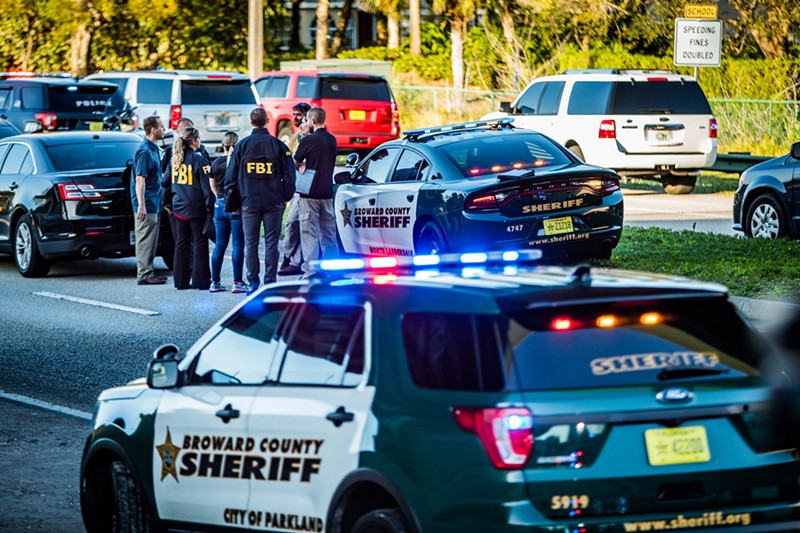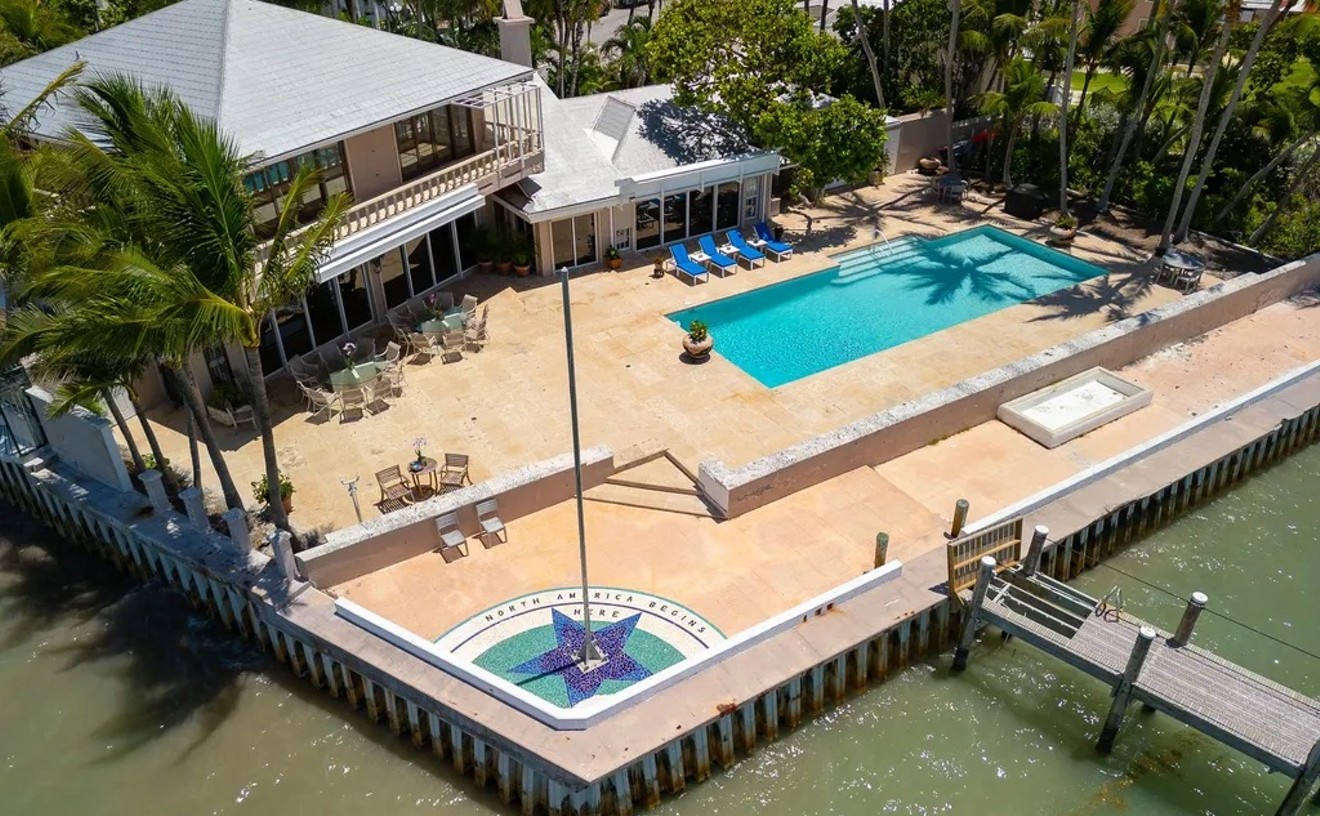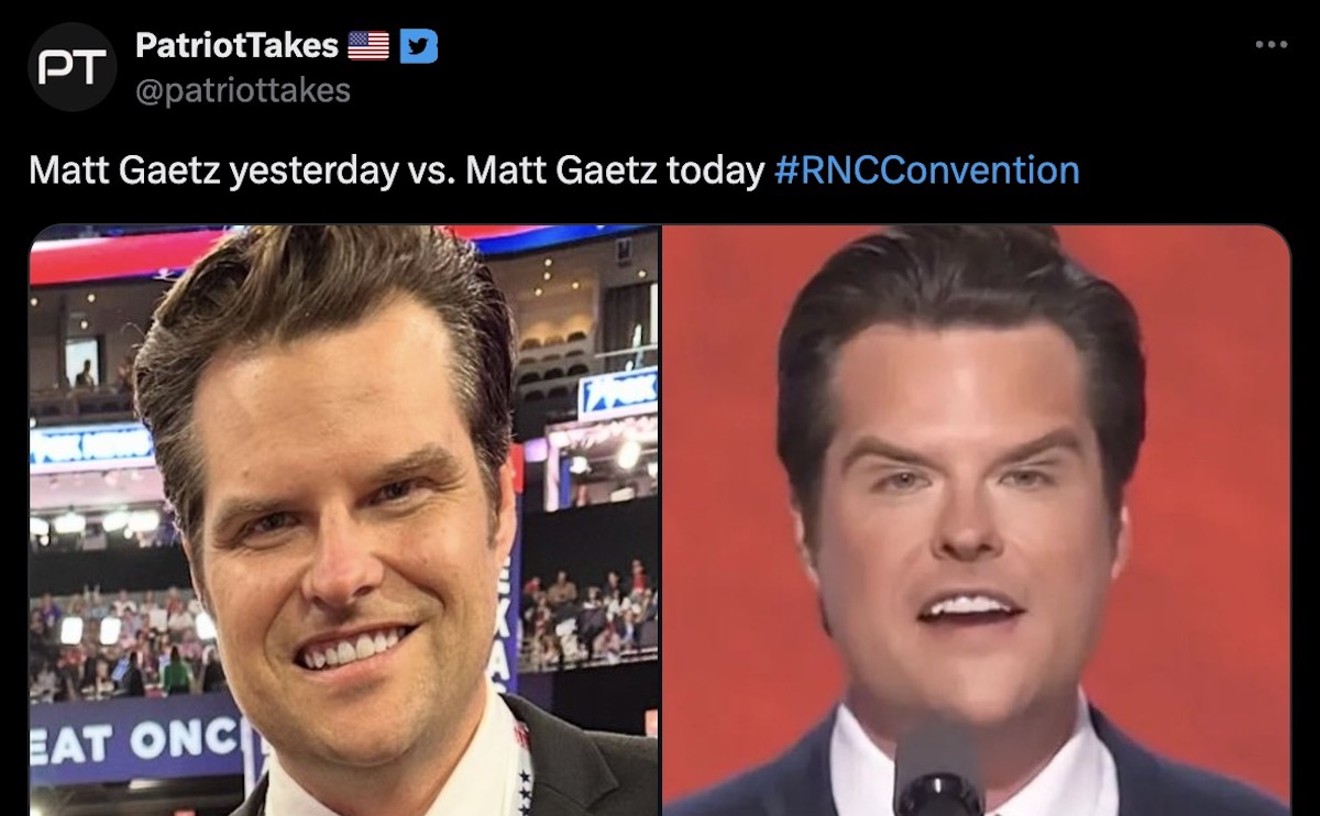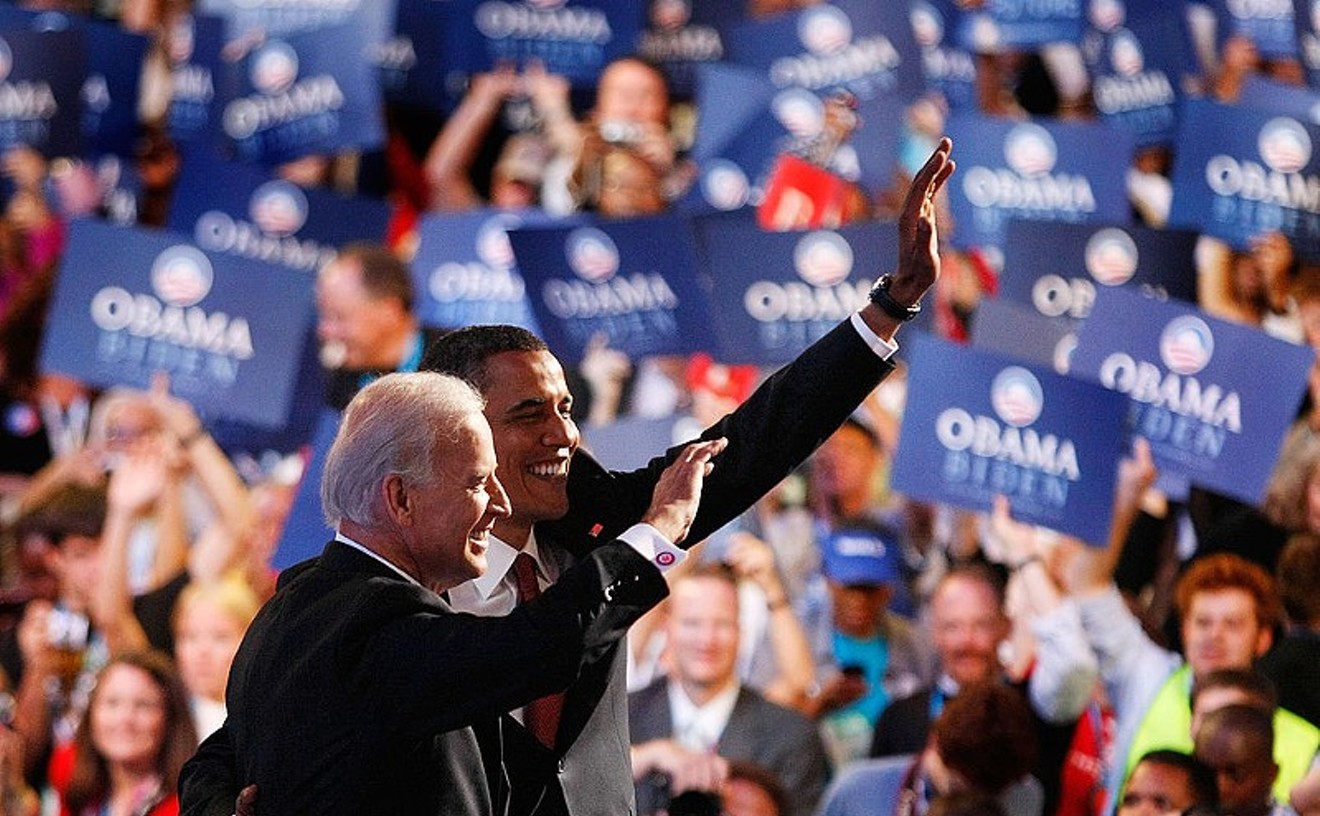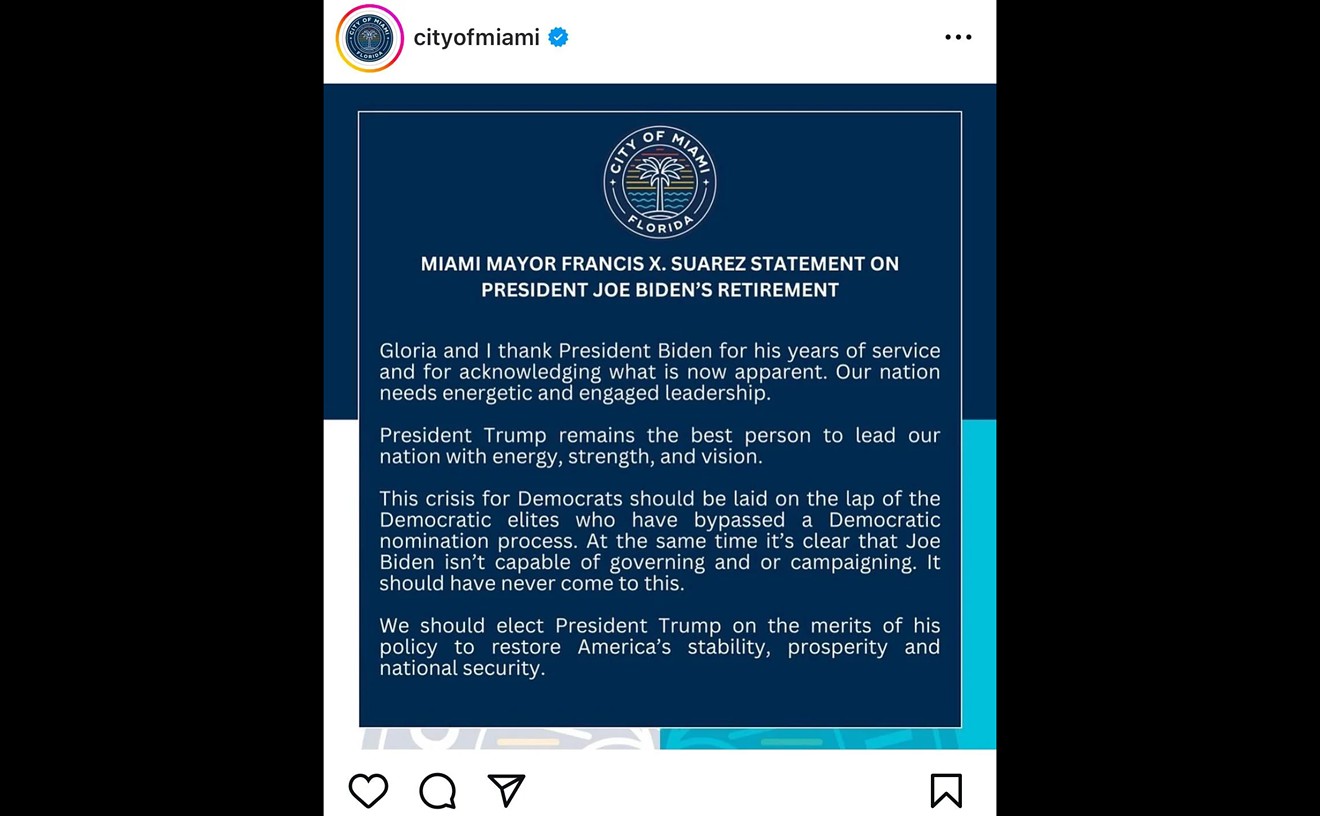A new report from the Southern Poverty Law Center (SPLC) warns that recommendations issued by the Marjory Stoneman Douglas High School Public Safety Commission are militarizing public schools in Florida and putting students at risk.
After the mass shooting in Parkland in February 2018, then-Gov. Rick Scott established the commission to investigate school safety and recommend new policies. The commission's initial report, released at the beginning of this year, included a list of new or updated procedures that, the SPLC argues, do the exact opposite of keeping Florida schoolchildren safe. Instead of being proactive about eliminating gun violence, the report doubles down on the myth that mental illness, not gun access, is the cause of mass shootings.
Some of the commission's recommendations are proactive solutions that could reduce the risk of gun violence, such as better access to mental health services and better training for school resource officers. But the majority are reactive approaches, such as increasing surveillance and arming teachers, without any evidence those steps will mitigate future school shootings. The SPLC asserts the new policies place kids at greater risk of being shot and exacerbate the disparities in the school-to-prison pipeline.
For starters, the commission recommends amending federal privacy laws so that sensitive student information can be shared. Its report advises that every school district create a policy requiring all school personnel to report any indicator of "suspicious student behavior" and that there "should be sanctions for non-reporting." Appointed threat-assessment teams wouldn't wait for reports but actively seek out individuals deemed to be a threat.
Without proper training, the SPLC says, this kind of policy will inevitably be affected by personal biases. Students of color and students with disabilities are already disproportionately affected by school discipline, suspensions, and arrests. In the 2015-16 school year, black students represented 15 percent of the public school population but 33 percent of school arrests. Similarly, students with disabilities represented 12 percent of the school population but 28 percent of all arrests.
SB 7030, passed this year by the Florida Legislature and signed into law by Gov. Ron DeSantis, proposes significant changes to the school guardian program established in 2018. That includes diverting funds for academic instruction, school supplies, and class-size reduction toward safety measures such as "school hardening." The SPLC worries "school hardening" will be costly, unproven, problematic for students with disabilities, and potentially in violation of the Americans With Disabilities Act because it recommends all doors — including bathrooms — be locked as often as possible, making access difficult for some students.
Furthermore, the establishment of a statewide database of students suspected of being potential threats will inevitably affect students of color more than white students, the SPLC says. SB 7030 also expands Florida's zero-tolerance discipline policy, which could cause more students to be arrested in school. Florida already has a higher rate of minors jailed in adult prisons than any other state in the nation.
Finally, the SPLC says, arming Florida's teachers — a law implemented last month — will not make schools safer. Instead, it does the exact opposite by increasing the chances of gun violence.
The SPLC says the commission's recommendations are not surprising given its makeup. The group comprises a large number of individuals with backgrounds in law enforcement or prosecution, is overwhelmingly white, and includes only one mental health expert. None of the appointees is a current educator or student, and there is an obvious lack of representation from the organizers of March for Our Lives — Marjory Stoneman Douglas student survivors who have campaigned for gun reform nationally.
"Given its membership, it is unsurprising that the Commission's initial report focuses on law enforcement details," the SPLC report states. "The initial report includes some proactive recommendations that are likely to reduce the risk of future school shootings, such as better access to mental health services and more training for SROs. But it focuses most of its attention on reactive approaches, surveillance, hardening, and arming measures that it claims, without evidence, will mitigate harm from future school shootings."

Audio By Carbonatix
[
{
"name": "Air - MediumRectangle - Inline Content - Mobile Display Size",
"component": "19274298",
"insertPoint": "2",
"requiredCountToDisplay": "2",
"watchElement": ".fdn-content-body",
"astAdList": [
{
"adType": "rectangle",
"displayTargets": "mobile"
}
]
},{
"name": "Editor Picks",
"component": "17482312",
"insertPoint": "4",
"requiredCountToDisplay": "1",
"watchElement": ".fdn-content-body",
"astAdList": [
{
"adType": "rectangle",
"displayTargets": "desktop|tablet"
},{
"adType": "rectangle",
"displayTargets": "desktop|tablet|mobile"
}
]
},{
"name": "Inline Links",
"component": "18711090",
"insertPoint": "8th",
"startingPoint": 8,
"requiredCountToDisplay": "7",
"maxInsertions": 25
},{
"name": "Air - MediumRectangle - Combo - Inline Content",
"component": "17482310",
"insertPoint": "8th",
"startingPoint": 8,
"requiredCountToDisplay": "7",
"maxInsertions": 25,
"watchElement": ".fdn-content-body",
"astAdList": [
{
"adType": "rectangle",
"displayTargets": "desktop|tablet"
},{
"adType": "rectangle",
"displayTargets": "desktop|tablet|mobile"
}
]
},{
"name": "Inline Links",
"component": "18711090",
"insertPoint": "8th",
"startingPoint": 12,
"requiredCountToDisplay": "11",
"maxInsertions": 25
},{
"name": "Air - Leaderboard Tower - Combo - Inline Content",
"component": "17482313",
"insertPoint": "8th",
"startingPoint": 12,
"requiredCountToDisplay": "12",
"maxInsertions": 25,
"watchElement": ".fdn-content-body",
"astAdList": [
{
"adType": "leaderboardInlineContent",
"displayTargets": "desktop|tablet"
},{
"adType": "tower",
"displayTargets": "mobile"
}
]
}
]

